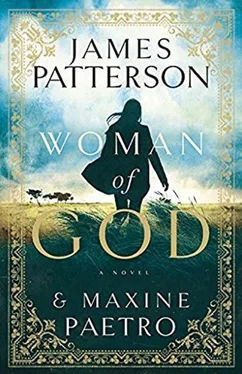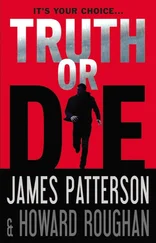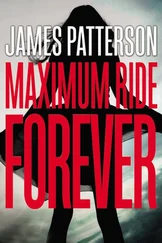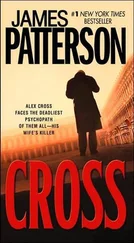James and I were mentioned in all of the cardinal’s diatribes. Sometimes, the inflammatory image in the corner of the screen was of me, Aubrey’s wife. Aubreyism’s fake woman priest.
But as the weeks became months, it seemed that the cardinal’s smear campaign had backfired. As appealing and omnipresent as he was personally, more renegade “Catholic” churches had come into being. Existing churches were transformed into JMJ churches. New churches were opened in people’s homes, and by Gilly’s fourth birthday, the movement had spread to South America and Europe.
The press continued to be fascinated by us, and Gilly had her own fans. A sparkly redhead, Gilly Aubrey was verbal and quite funny. And she could really ham it up when a camera was pointed at her.
Which was not good.
I remember a pushy reporter in a cute sundress and heels chasing Gilly up the walkway to the church, demanding,“Gilly, come and talk to me.”
I got between my child and the reporter, and when I had the reporter’s complete attention, I signaled to the others in the media van, and the three or four paparazzi I could see across the street, and waved them into the church.
When they had all assembled, I said, “Everyone, I understand why you’re here, but Gilly is just a little girl. We need an agreement, all of you and me. I will be available right here every weekday at ten to answer your questions, but my daughter is off-limits. Seem fair?”
I gave the reporters my email address and invited them to church on Sunday. I started my weekday press meetings the next day, Monday, and they were actually good for all concerned. The reporters became normal people when we could talk one-on-one. And I got to know them: Jason Beans from the Globe, Arthur Glass from the World Press, Antonia Shoumatoff from the Millbrook Independent, and well-known reporters from cable and network news.
The aggressive attacks stopped. Susie Kennedy, the reporter who had chased Gilly up the path, was from USA Today. She started bringing brownies to the morning meetings. Often we all talked about world events having nothing to do with our church or religion at all.
Once in a while, Zach showed up. He was still with the New York Times, and he had questions, too. After the others left, we would sit together on the steps of the rectory and talk.
Sometimes I learned more about JMJ’s progress from Zach than even James and I knew.
“And you, Zach? How are you?”
“Growing back my beard,” he said in Italian, giving me a broad grin. “My editor likes my pages, and now I’ve got a dog.”
“A dog?”
“Chihuahua named Jeter. He travels well.”
We talked baseball for a while, and that was when I forgot that Zach was a reporter. He was just Yank. I told him that I was working on all cylinders and James was, too. That James looked tired, but he was doing what he loved.
“I get that,” Zach said. “Me too.”
Gilly came over and told Zach that she had had a dream about him. “You were Zach and the Beanstalk,” she said.
When it was time to go, Zach hugged me, kissed my cheek, as always, and waved good-bye.
I asked myself once again if Zach’s book was really going to be good for JMJ or if it would be just another punching bag for the cardinal.
I didn’t know it then, but Zach Graham was the least of my worries. I was about to be blindsided by someone much closer to home.
WHEN I took my seat opposite celebrity broadcaster Morgan McCartor on the 60 Minutes set, I didn’t have the slightest premonition that my secret life was about to be cracked wide open.
James was home sick with the flu, but the pre-taping of the show couldn’t wait. McCartor was unconcerned about the programming change and introduced me to her TV audience of twenty-five million viewers. She sketched out the highlights of my life in glowing terms, from my work at Kind Hands, my near-death injuries on the battlefield, and the tragic loss of Karl and Tre, to my dramatic marriage to James Aubrey, my ordination, and the turmoil our movement had brought to Catholicism worldwide.
I almost couldn’t take so much attention and fought the urge to squirm in my seat.
McCartor, on the other hand, was in her element.
She was beautiful and smart and was so familiar to me from her interviews of presidents and killers and rock stars, I almost thought of her as a friend. She tossed me some softball questions, and I got relatively comfortable, and then she hit me with her best shot when she said, “Brigid, take a look at this clip, will you?”
I watched as my darling Gilly’s face filled the big screen. She was wearing a cherry-print jumpsuit with mismatched socks and shoes, her new favorite look this summer. An off-camera voice was saying to her, “Gilly, when you say your mom talks to God, you mean she prays, isn’t that right?”
And Gilly, my dear daughter said, “Sure, she prays. But sometimes when she talks to God, He talks back to her. She told me so.”
My face heated up. Gilly. What made you say that?
McCartor was saying, “Brigid, tell us what your daughter means. Do you converse with God?”
I had to decide right then, with cameras rolling, whether to tell the truth and risk whatever fallout ensued, or to deny my connection to God.
Morgan McCartor was saying my name.
“Brigid? Is it true that you not only speak to God, but He speaks to you?”
I was thinking fast, editing my own thoughts. How could I explain my personal experiences with God without sounding insane?
I gave it a try, relaxing my shoulders, speaking to my “friend” Morgan as if we were sitting together over coffee at a kitchen table.
I said, “Sometimes, on rare occasions and never on demand, my mind is filled with what I feel strongly is the word and presence of God. It’s a momentous experience, and while it’s happening, it’s as if I’m both in the actual, physical present and, at the same time, in a metaphysical realm. I see moving images unlike anything I have ever seen or could ever imagine. I hear a resonance, almost like a voice, responding to a question in my mind. I have to interpret these visions and find the answers to my questions within them.”
McCartor was right there, ready to ask, “What kind of questions, Brigid? What kind of answers? What can you share about this amazing phenomenon with us?”
“I can say that the first time I experienced this-this overpowering connection-was the day that I was shot. My heart stopped, and it took several minutes to bring me back. Technically-and by that I mean literally -I died. I’ve been neurologically cleared by the best doctors. I don’t have brain damage, and I’m not crazy. So, what do I think? That through my death, a channel opened in my mind to the presence of God.”
I conveyed a full stop after “God,” and the TV interviewer got it.
“That’s all you’re giving us?”
I laughed. “Seems like an awful lot to me.”
McCartor said, “Thank you, Brigid, for this most extraordinary interview.”
She turned directly to the camera and told the audience what to expect in next week’s show, and then hot lights went out, stagehands applauded wildly. McCartor leapt out of her chair and embraced me.
“You’re an amazing person, Brigid. It’s hard to believe what you’ve told us, but I do believe you. I’ve never had an interview like this. You’re inspiring to so many people. You’re the real thing. And, take it from me, I know the real thing.”
LAWRENCE HOUSE was on a bar stool at Cal’s Roadhouse, watching 60 Minutes on the TV over the bar, when Morgan McCartor signed off. Sunday-night drinkers crowded the far end of the bar, a group of rowdies crowded the dartboard, and a couple of kids were fooling around in a booth in the back.
Читать дальше












